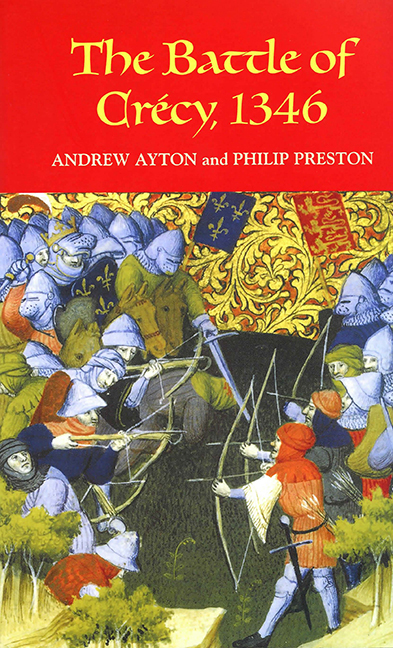Book contents
- Frontmatter
- Contents
- List of Illustrations
- Preface and Acknowledgements
- Abbreviations
- Dedication
- Introduction
- The Campaign
- The Battle
- The English
- The French
- Sources and Problems of Interpretation
- 9 Crécy and the Chroniclers
- 10 Topography and Archery: Further Reflections on the Battle of Crécy
- Index
- Miscellaneous Endmatter
9 - Crécy and the Chroniclers
from Sources and Problems of Interpretation
Published online by Cambridge University Press: 25 October 2017
- Frontmatter
- Contents
- List of Illustrations
- Preface and Acknowledgements
- Abbreviations
- Dedication
- Introduction
- The Campaign
- The Battle
- The English
- The French
- Sources and Problems of Interpretation
- 9 Crécy and the Chroniclers
- 10 Topography and Archery: Further Reflections on the Battle of Crécy
- Index
- Miscellaneous Endmatter
Summary
Three questions were posed in the opening chapter of this volume. The third – ‘how significant an event was the battle of Crécy’? – was explored in that chapter; indeed, it is perhaps the central theme of the book. In Chapter 2, the discussion turned to the first question: ‘why did the battle of Crécy take place?’ Having reviewed the evidence, a new interpretation was offered that suggested that the battle of Crécy can perhaps best be understood in the context of its geographical location in the county of Ponthieu; that one of the strategic options that Edward had in mind at the outset of the campaign, an option that had become central by the time that his army had reached Caen, was to provoke Philip VI into battle in Ponthieu, on a site that had been pre-planned.
In the concluding part of this book we shall return to the second question that was posed in the opening chapter: ‘how was it that the English won the battle?’ Addressing this very issue in a sermon to the English high command a few weeks after the battle, the eminent churchman, Thomas Bradwardine, who had been present on 26 August but probably not a real eyewitness to the fighting, had a clear view of the subject. The English had triumphed not because of military skill, good fortune or fate, but because it was God's will.1 Naturally, Bradwardine was not alone in expressing this view. The author of the Grandes chroniques, writing at Saint-Denis soon after the battle, considered the outcome, including the heavy casualties sustained by Philip VI's army, to be divine punishment for the sins of the French – their pride, greed and vanity. In his opinion, it was small wonder that God had wished to correct ‘les excès des François par son flael le roy d'Angleterre’.
A modern historian will seek a more earth-bound explanation for the outcome of the battle. But the search will not be easy, for as Michael Prestwich noted in Chapter 4, it is notoriously difficult to establish, from the narrative sources, a clear picture of what happened on a medieval battlefield. We may be offered glimpses of a few individual incidents (often the chivalric deeds of particular aristocratic warriors), perhaps a vivid characterisation of the heat of the fray, but rarely a clear outline of the main sequence of events.
- Type
- Chapter
- Information
- The Battle of Crécy, 1346 , pp. 287 - 350Publisher: Boydell & BrewerPrint publication year: 2005



